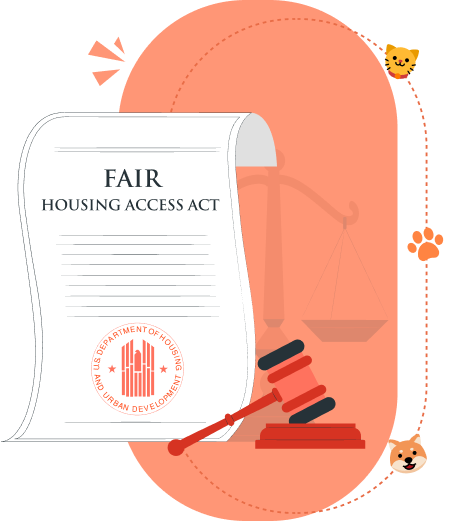Public-Access Limits for ESAs in Hawaii
ESAs don’t receive the same recognition as service animals when it comes to public access. Under the Americans with Disabilities Act (ADA), only trained service animals are guaranteed entry to public spaces. This means that ESAs in Hawaii generally do not have the right to enter restaurants, malls, grocery stores, hotels, or entertainment venues.
Access with an ESA outside of housing is usually left to the policies of individual businesses, schools, or organizations, and permission is not automatic.
Public spaces are not legally required to allow ESAs, since they are not covered under ADA protections.
- Entry Depends on Permission
If you want to bring your ESA to a workplace, school, or other non-housing setting, prior approval is often necessary.
- No Guarantee in Businesses
Shops, restaurants, and event venues can deny entry to ESAs without violating federal law.
- Special Review for Schools & Workplaces
Employers and educational institutions may review ESA requests as disability accommodations, but approval is considered case by case.
Before bringing your ESA into a non-residential setting, contact the location directly to confirm its policy and avoid issues at the door.
Pricing
PSD Letter
Reviews
ESA By States
ESA Laws
Resources


